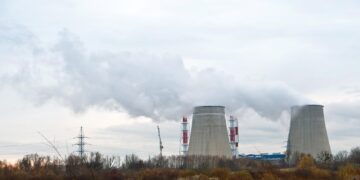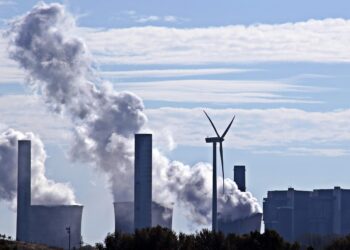Exploring the Roots of Global Warming: Human Activities and Natural Processes
Global warming represents one of the most urgent environmental challenges, influencing everything from climate patterns to global ecosystems. This complex phenomenon is driven by both human activities and natural processes, each contributing to the gradual increase in Earth’s atmospheric temperature. This article dives deep into the roots of global warming, elucidating the role of anthropogenic influences and natural dynamics, compelling readers to understand and mitigate its impacts effectively.
Understanding Global Warming
Global warming refers to the long-term rise in Earth’s average surface temperature. This trend is a primary aspect of climate change and involves multifaceted interactions within the atmosphere. The increase is mostly due to increased concentrations of greenhouse gases, which create an insulating layer around the Earth, trapping heat and altering weather patterns globally.
Human Activities: The Primary Culprits behind Increased Greenhouse Gases
Fossil Fuel Combustion
One of the main drivers of global warming is the combustion of fossil fuels such as coal, oil, and gas. This process releases substantial amounts of carbon dioxide (CO2), a potent greenhouse gas. Statistics reveal that CO2 emissions from fossil fuels and industrial processes accounted for about 78% of the total greenhouse gas emission increase from 1970 to 2011.
Deforestation
Deforestation is another significant contributor to global warming. Trees play a crucial role in carbon storage, absorbing CO2 from the atmosphere through photosynthesis. When forests are cut down for agriculture, urban development, or other reasons, this stored carbon is released back into the atmosphere, intensifying the greenhouse effect.
Agricultural Practices
Agriculture contributes to global warming through the release of methane (CH4) from livestock and rice crops, nitrous oxide (N2O) from fertilized soils, and the carbon emissions associated with the conversion of forests into agricultural land. These gases, though released in smaller quantities than CO2, have a far greater warming effect per molecule, making them significant despite their lower concentrations.
Natural Processes Contributing to Global Warming
Volcanic Eruptions
Though predominantly a human-driven issue, natural processes like volcanic eruptions also contribute to global warming. Volcanoes emit ash and gases, including CO2, into the atmosphere. However, the effect of volcanic emissions on climate is complex and can lead to both cooling and warming, with cooling generally considered the more immediate impact due to sulphate aerosols blocking sunlight.
Permafrost Thaw
The thawing of permafrost—a permanently frozen layer under the Earth’s surface in polar regions—releases large quantities of methane and carbon dioxide. As global temperatures rise, this thawing accelerates, creating a feedback loop that further exacerbates global warming.
Solar Variations
The sun’s energy output changes slightly over decades and centuries. These variations can influence the Earth’s climate, though the extent of their impact compared to human activities is still a subject of research. Nonetheless, periods of higher solar activity do contribute marginally to increased global temperatures.
Addressing Common Questions about Global Warming
Is global warming solely caused by human activities?
While natural processes do play a role, the current rapid increase in global temperatures is primarily fueled by human activities, especially the massive release of greenhouse gases from industrial, agricultural, and transportation-related sources.
Can global warming be reversed?
Reversing global warming is challenging but not impossible. It requires significant reductions in greenhouse gas emissions, enhanced conservation practices, and potentially, the development of technologies to remove CO2 from the atmosphere. International cooperation and compliance with global climate agreements like the Paris Agreement are also crucial.
How can individuals help mitigate global warming?
Individual actions, while seemingly small, can collectively make a significant difference. These include reducing energy consumption, using public or non-motorized transport, supporting renewable energy projects, and practicing sustainable consumption habits. Educating oneself and others about the importance of these measures is equally important.
Conclusion
Understanding the roots of global warming is essential for developing effective strategies to combat it. Human activities are undoubtedly the dominant force driving the recent changes in the Earth’s climate. However, natural processes also contribute, though to a lesser extent. By recognizing the full spectrum of causes, both natural and anthropogenic, we can better address the multifaceted challenges of global warming and steer towards a more sustainable future for all.
As we continue to explore and understand these complex interactions, it is clear that mitigating global warming is a collective responsibility—requiring action from individuals, corporations, and governments worldwide.









